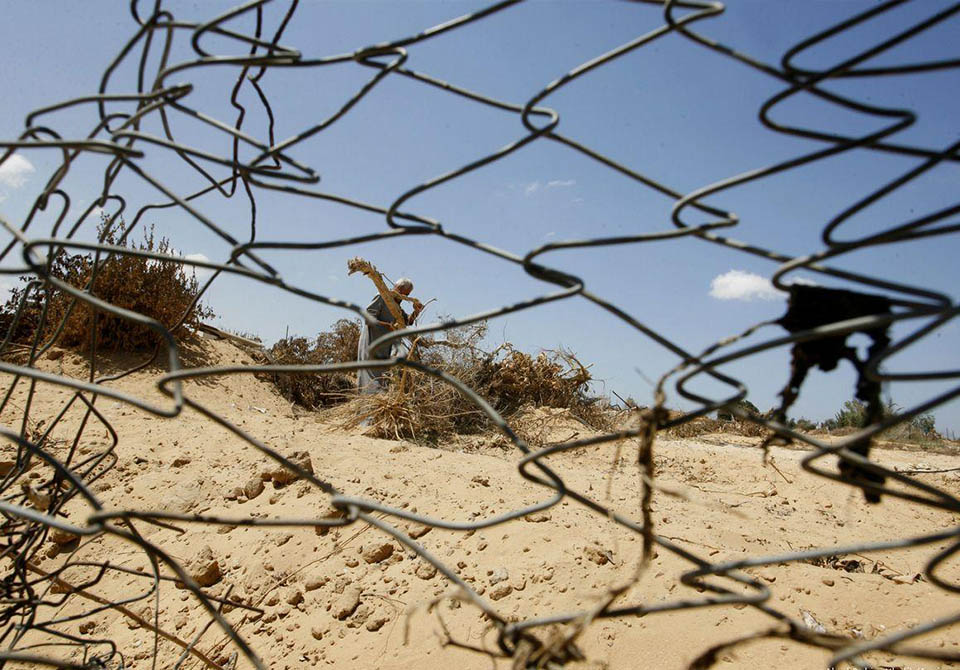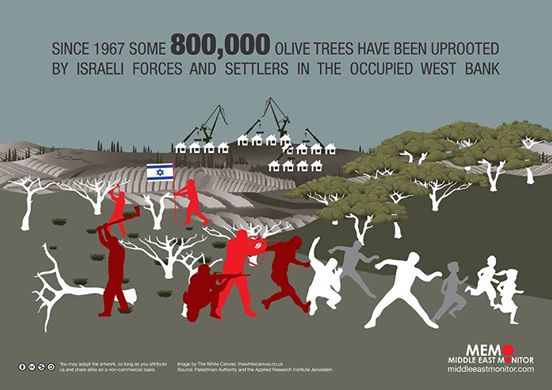Israel limits Palestinian access to farmland

West Bank farmers seeking access to their farmland located behind Israel’s illegal Separation Wall are facing intimidation and further access restrictions by Israeli occupation forces
“When you go to that gate, there is a group of Israeli soldiers and the settlement guards. They keep people’s ID cards when they enter and hand it back to them on their way out,” one eyewitness said of the treatment farmers get in Salfit.
Farmers are forced in the system of so-called “prior coordination” ahead of the olive harvest, meaning that they seek approval from the Israeli occupation authorities in order to access their farmland which is surrounded by illegal settlements or which is located behind the illegal Separation Wall.
As a result of restrictions to access, farmers arrive at the Wall’s gates in the early hours of the morning and wait until occupation forces come to open them. The situation is worse when farmers try to return to their homes, the eyewitness told MEMO, “farmers wait there at 4pm to leave, tired after a long walk and a long day working, when I was there the army opened the gate for them at 5:30pm”.
Salfit is surrounded by one of the largest illegal Israeli settlement in the West Bank, Ariel, which is home to 41,000 settlers. The Palestinian town is home to 74,000 people.
The olive harvest season runs from mid-October to mid-November, some 100,000 families are said to rely on olives and olive oil as main sources of income.
Earlier this month settlers were filmed stealing olives from Palestinian trees near the occupied West Bank city of Nablus.
According to Israeli human rights NGO Yesh Din incidents like these are repeated every year. Last year thousands of kilogrammes of olive crops were stolen by settlers in the Nablus area, the group said.

Source: Middle East Monitor

WRITE YOUR COMMENT